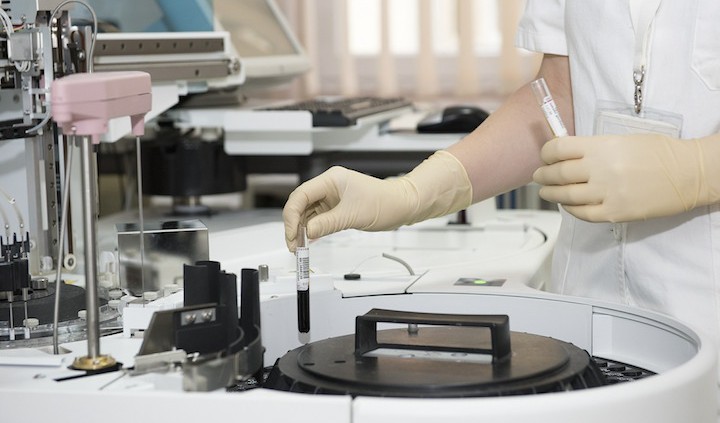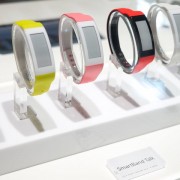Digital Health – The Health Operating System
by Roberto Ascione, CEO at Healthware International
with the contribution of Gerry Chillè, General Partner at Healthware Labs
During the last 20 years, we have witnessed the transformation of healthcare from an industry firmly set in its traditional ways, to one that began to adopt digital technologies in areas such as communications and research. With all the changes that digital technologies have ushered into healthcare the one unchanged constant has been the industry’s business model, which can probably be better defined as “sick-care” because most of its services go into motion from the moment we start feeling ill.
There are many historical and human factors as to why the industry and its revenue streams are set up the way they are but, as in any industry, there are constant forces of innovation at work, and at some point the convergence of new technologies, cost pressures and people’s changing attitudes precipitate seismic changes that break those traditional business models apart. Those companies willing to take calculated risks and figure out ways to ride the wave of innovation are usually the ones that survive these changes, with some of them prospering in their new world. Those companies that are late to embrace the changes are often left playing catch up, many times without a well thought out strategy to follow until they are either absorbed by a competitor, or close up shop.
In the case of the healthcare industry, this seismic change is now upon us. Artificial intelligence engines can now connect myriads of data point in nearly real-time, thus creating the conditions for a fundamental shift in how we will define the very concept of “healthcare”. This will happen with the convergence of increasingly sophisticated consumer technologies able to achieve clinical quality vitals monitoring, the collecting of personal digital health and genetic data, and the availability of massive amounts of clinical case history. What does this fundamental shift look like, you may ask? Let’s take a look at what it is doing in other industries.
In the last few weeks, many of us have seen the remarkable video of a Tesla car being able to predict a high-speed highway accident several cars ahead of it. By using onboard radar technology and image processing of cameras, the car’s computer detected and correctly anticipated the likelihood of an accident about to happen several cars ahead. At that point, the predictive algorithm took over, sounded an alarm to the driver and activated the auto-pilot to apply the brakes, thus avoiding being in a serious accident before it even began to unfold! Watch the video here to see for yourself.
We are now able to leverage this same real time predictive technology to anticipate a catastrophic health event and possibly stop it from happening to begin with. In times past, we would have referred to this concept as “preventive medicine” but we feel that the term no longer applies to today’s digital health potential, and is too closely associated to the old siloed healthcare/sickcare business model that defined it. Preventive medicine assumes that we carry vestiges of diseases that might be common in our family history, perhaps informed by a clinical event that had already progressed enough to be noticed during our once a year doctor check-up. By that time, many disease triggering factors have already taken hold and all we can do is slow down its progression. Our own human nature is often the very thing that stops us from taking the “preventative” steps to disease management, until we actually feel the symptoms of impending illness which scare us into action.
To truly enter the new age of data driven digital health, we need to stop thinking about preventive medicine, and start thinking about overall health & wellness in a holistic and addressable context, and come up with ways to leverage all of today’s technologies that surround us in ways that keep us well to varying degrees of health. Health happens physically, emotionally, socially, and on a number of other dimensions which also include nutrition and the environment around us. The way to arrive at a point where we can measure, monitor and act on health is by being able to integrate from many different devices, technologies and data into a seamless Health Operating System. The HealthOS is always up-to-date with our vitals, easy to consult and decipher, it will alert us of impending problems before they take hold and inform us as to what we can do to nudge us away from unhealthy behaviors; it will encourage and support us along the way. A HealthOS follows us from cradle to grave, and might one day even make the end-of life-process something that we can better prepare for, for ourselves and our loved ones.
A HealthOS takes the form of social online communities of people living with diabetes sharing coping tips and favorite recipes that help control their blood glucose levels; it can help us emotionally support a loved one half a world away while they are dealing with their own health condition. A HealthOS integrates with a smart watch with a built in EKG sensor that can detect and report on an irregular heartbeat months or years before the onset of physical symptoms (which are the traditional triggers to a doctor’s visit). A HealthOS motivates and reminds us to integrate physical activity in our sedentary day-to-day routines, which is proven to be on of the best ways to stay healthy to begin with. But there is a structural business challenge standing in the way of a full implementation of a HealthOS. Who integrates and sells these types of services, and how do they get paid for it in the end?
For as long as the financial revenue models of our industry are solely tied to “sick care”, the full promise of a Health OS will not be realized. We will very soon have the technologies to predict and avoid our bodies’ own version of an impending “car crash”, so for the Health OS to become a reality we need to come together to find ways to innovate healthcare’s business models away from siloed “sick-care” and towards a health centered and profit generating paradigm.
On our end, Healthware International has been working in the digital health innovation arena for several years now and have pioneered several initiatives. Today we help large companies such as Pharmas, Insurers, Device Manufacturers as well as digital health startups figure out collaboration models to navigate this brave new world together.
We would be interested to hear what initiatives you may be contemplating and we love to partner on exciting projects.
This article has been written by Roberto Ascione, CEO at Healthware International, with the contribution of Gerry Chillè, General Partner at Healthware Labs.
Roberto Ascione will speak at DTS on February 15th at 1:20pm on MedTech stage.
Tickets are available now. Click here to secure yours.
—–
GET YOUR DTS TICKET TODAY (link)





